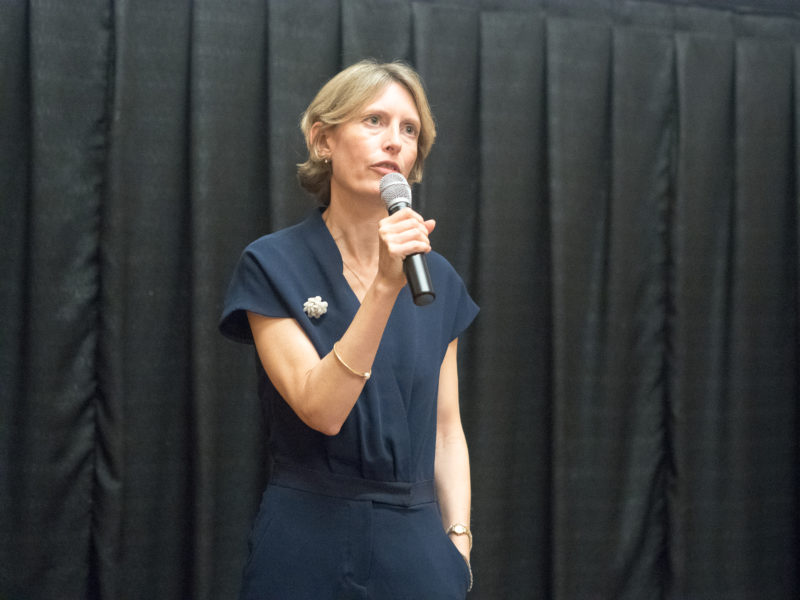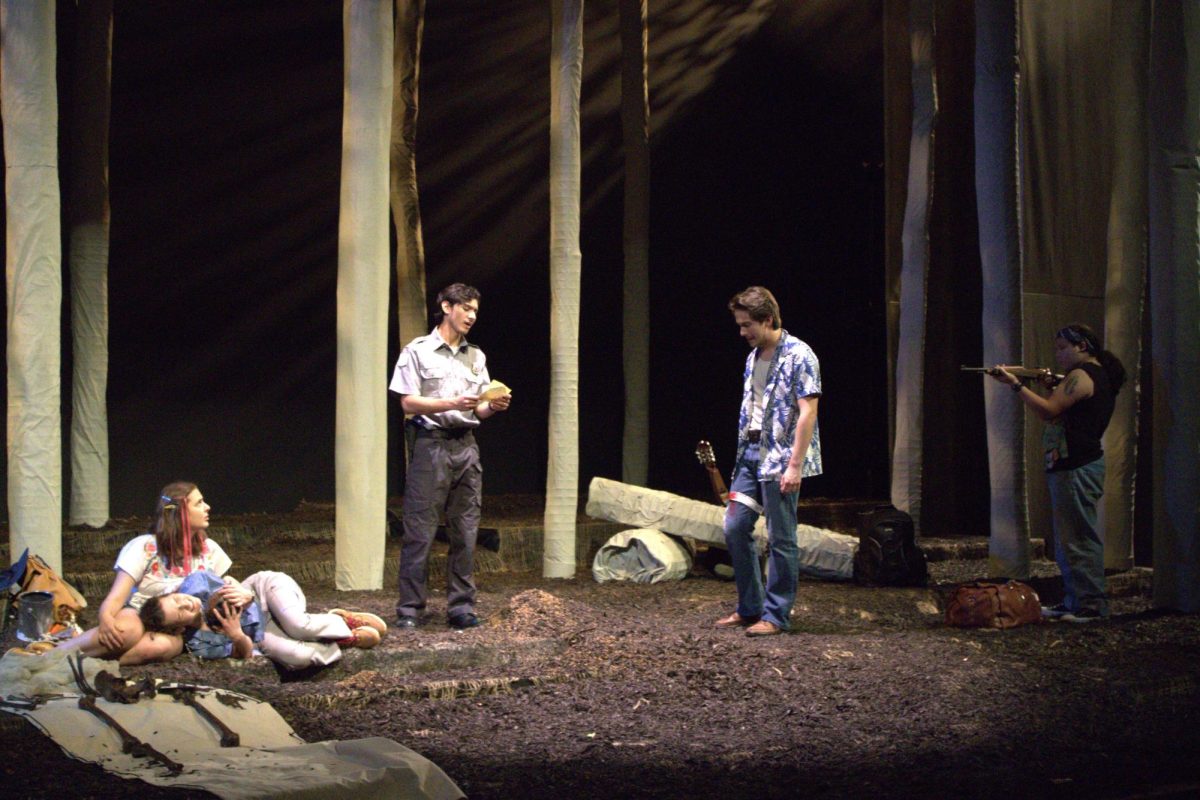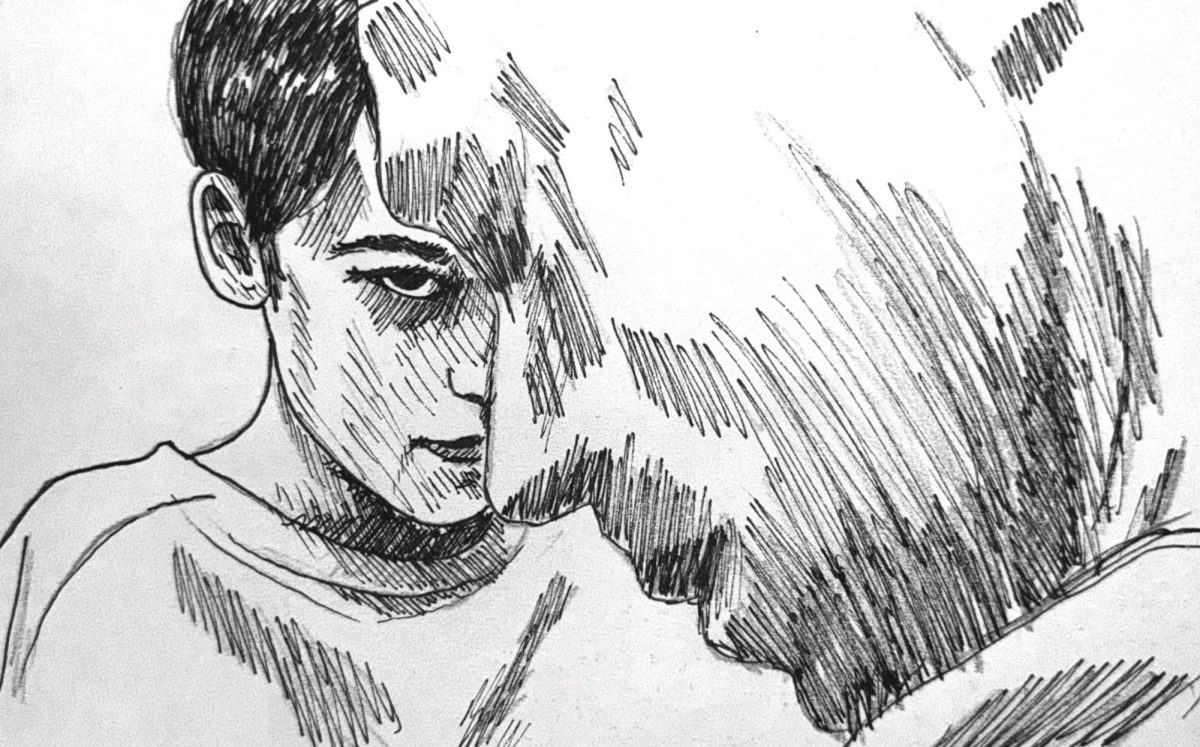Trinity University’s Lennox Seminar lecture series kicked off at the San Antonio Museum of Art with a talk on sexuality in the Roman empire by Caroline Vout, one of the most prolific modern historians of Greek and Roman culture, on Sept. 12. She had quite a busy day beforehand, having flown to Texas from the United Kingdom just in time to have a smaller, more specialized discussion with a group of Trinity classics undergraduate students.
“I’ve got such bad jet lag, it’s 4 o’clock for me right now,” Vout said at the beginning of her lecture, though she did not regret the opportunity to speak. “Trinity’s students were absolutely fantastic.”
Jetlagged though she may have been, it did not show during the Lennox lecture itself, which focused primarily on the evolution of attitudes towards sexuality “” especially femininity “” held in Rome, how it contrasted with attitudes held by classical Greece and how these attitudes further shifted with the rise of the Christian faith in the empire.
The packed auditorium sat close to one hundred and seventy, a crowd composed of Trinity students, other students of the classics and casual attendees. Many audience members were forced to stand in the back or take seats on the stairs in order to accommodate such a large attendance.
Vout began the lecture by pointing out the scarcity of coverage that Rome’s sexual history receives in the academic world, saying that little attention has been paid to the subject other than its role in mythology or in the capital itself. Despite this, Vout argues that the transgressive and overwhelming potential of sexual desire did much to shape the nature of the empire.
“Sexuality is a force to transcend societal constraints,” Vout said, calling attention to the vast number of norms and rules enforced by Rome upon its conquered territories. For a state so bent on subjugating others, why would there be such a focus on controlling sex if not to prevent agency among its people?
She went on to provide various alternative interpretations of artistic representations of Venus, noting that in the historically male-dominated world of academic study, feminist discussion of such works have only appeared recently. Similarly, while heterosexual relationships were prioritized in the Roman empire in order to continue one’s lineage, Vout discussed how homosexuality and other alternative orientations were certainly not taboo or unknown, despite some popular belief to the contrary.
Vout brought specific attention to the homosexual relationship between Roman emperor Hadrian and the young man Antinous, a liaison well known by the public of Rome, as well as the myth of Hermaphroditus and surrounding body of artwork made in his image.
“Hermaphroditus was a queer body celebrated by the Romans,” Vout said. “They were attuned to the fluctuations of what we now call gender.”
Vout spoke quickly and with authority. While it was easy to get lost in the rapid stream of names, places and events she spoke of, it was impossible to miss the tender, respectful way in which she referred to them. Vout has spent years of her life studying the often poorly documented ways that sex was treated in the Roman empire, having written several books on the subject, including “Power and Eroticism in Imperial Rome” and “Sex on Show: Seeing the Erotic in Greece and Rome.” She is a woman who, despite the countless hours of dry research, has not forgotten that the people who form the subject for her study were themselves thinking, feeling beings.
“Sexuality remains enigmatic, regressive and primitive,” Vout said. “If you truly want to know what it was like to live under the Roman empire, you could certainly do worse than study sexuality.”
While Vout has since departed from San Antonio, the remaining three lectures in the Lennox series will occur on Trinity’s campus. The next speaker, Craig Williams, is a professor of classics at the University of Illinois Urbana-Champaign, and will discuss the treatment of relationships between animals and humans in Roman texts on Oct. 2.






